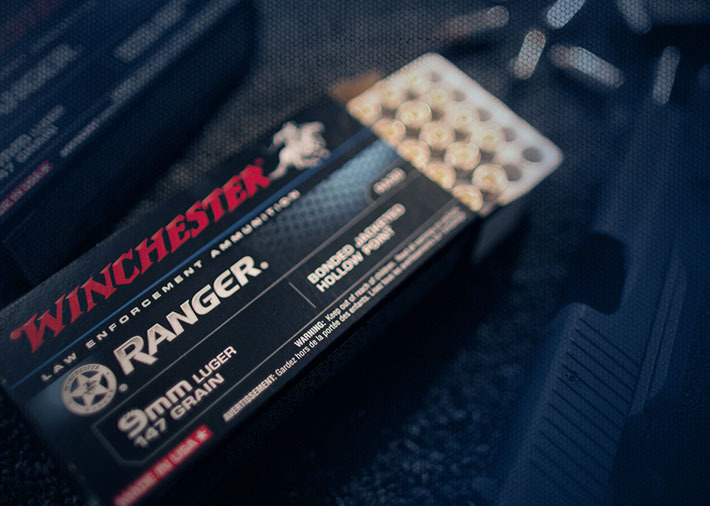Common Sense Duty Ammunition Rotation

On numerous occasions, Police Departments have questioned when they should rotate duty handgun ammunition. Unfortunately, there is no one concrete answer. The answer depends on a number of factors:
- When ammunition is not damaged by manual cycling through the gun, there generally is no problem and the gun functions just fine. However, you need to think about how many times per week or month you are cycling a loaded round through your gun in loading or unloading. If you cycle the top bullet from the magazine into the chamber each time, you are getting plenty of hits on the bullet nose, extractor groove, and case rim with basically steel on brass. What do you think will give first? If you guessed the brass or the copper, you are correct.
- Every time you cycle a round into the chamber, the nose of the bullet hits the feed ramp causing a slight denting of the hollowpoint bullet mouth. The size of the dent depends on the weapon feed ramp design and the shape of the hollowpoint bullet nose. If the bullet nose hits against the feed ramp enough times, with multiple re-chambering of the same round, you could get enough of a dent to cause a miss-feed and/or a jam, rendering the weapon temporarily out of service, if only for a critical moment.
- Every time you cycle a round from the magazine into the chamber, you are making a small gouge or dent in the extractor groove and/ or case rim. With time continued recycling can cause a weapon malfunction, depending on the design of the weapon.
- Some weapons have sharper extractor tips than others. High extractor tension coupled with a sharp extractor tip can increase the case damage. In addition, the shape of the ejector and the force of the manual ejection of the loaded round can damage a case rim.
- In addition, duty ammunition is out in the weather -- rain, sleet, snow, with extremes of temperature and humidity. We have seen, many times, bullets in the magazine that have turned green from corrosion. We have even seen bullets in the chamber so corroded, that they had to be removed from the bore with a wooden stick.
- Some officers over-lubricate their guns, and this lubricant eventually gets on the ammunition. Over time, certain lubricants can get into the casing, contaminating the powder, primer, or both, causing the round to not fire or resulting in a squib.
What Ammunition Rotation Program Makes Sense for My Department?
After a careful review of the above information, consider whether or not you load and unload the same round time and time again. If so, you can lessen the wear by putting the chambered round in the bottom of the magazine.
You should examine the bullet tips, and if they look beat up, segregate the ammunition for practice. You should also consider the weather conditions in your area. If you are in an area of high heat and humidity coupled with salty conditions (near the ocean), inspect your carry ammunition carefully for signs of corrosion or other damage.
Do you carry an extra box of ammunition in the trunk of the patrol vehicle? Did you know that temperatures in the trunk of a patrol car on a hot day could reach over 150 degrees?
What about the ammunition in your shotgun? In extremely hot weather, a shotgun loaded with a full magazine tube of shotshells with a strong magazine spring locked in a hot patrol car, can lead to problems. The plastic tube of the shotgun shell may soften under high heat conditions and high magazine spring pressure causing flattened shell mouths, which may prevent the round from chambering.
Twice a Year – Duty Ammo Rotation
If you are operating under average conditions of temperature, humidity, and loading and unloading cycles, you should rotate the duty ammunition you carry on your person or in your patrol vehicle twice a year. If you are operating under more adverse conditions, more frequent ammunition rotation would be advisable.
Remember, the rotated duty ammunition can be used for practice when either a miss-feed or miss-fire presents no safety issue for the officer. Additional practice to keep skills sharp is inexpensive insurance to protect your safety.
After considering the information presented in this article, you may want to rotate your duty ammunition more frequently. You may find that doing so is cheap insurance and adds to increased officer safety.
Winchester Law Enforcement Ammunition
